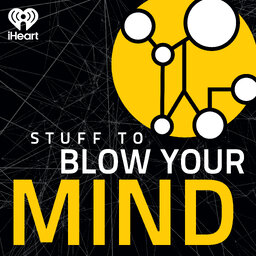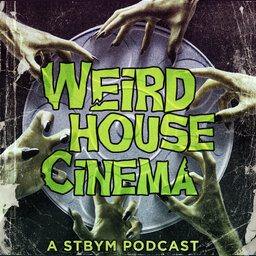The Dawn of a Mindful Universe, with Marcelo Gleiser
In this episode of Stuff to Blow Your Mind, Robert chats with Templeton Award-winning author and theoretical physicist Marcelo Gleiser about his new book “The Dawn of a Mindful Universe: A Manifesto for Humanity's Future.”
In 1 playlist(s)
Stuff To Blow Your Mind
Deep in the back of your mind, you’ve always had the feeling that there’s something strange about re…Social links
Follow podcast
Recent clips

The Monstrefact: Marvel’s Squirrel Girl
04:27

Crab Bag, Part 1: The Crabs are Back In Town
54:40

Weirdhouse Cinema Rewind: The Telephone Box
1:19:53
 Stuff To Blow Your Mind
Stuff To Blow Your Mind